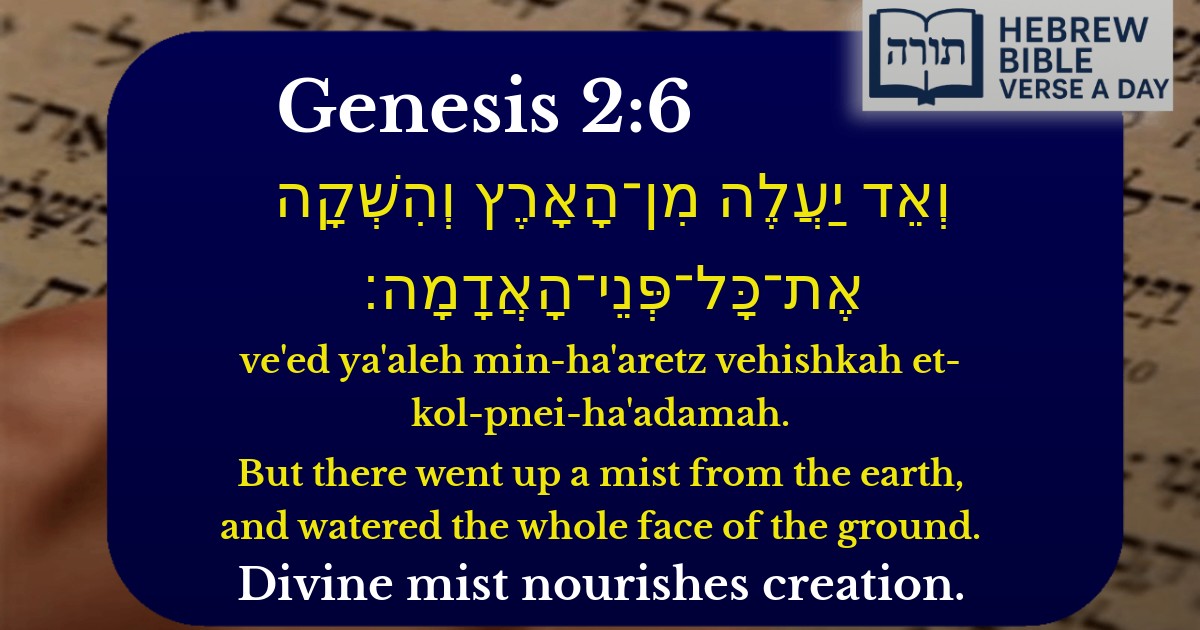Join Our Newsletter To Be Informed When New Videos Are Posted
Join the thousands of fellow Studends who rely on our videos to learn how to read the bible in Hebrew for free!
Hebrew Text
וְאֵד יַעֲלֶה מִן־הָאָרֶץ וְהִשְׁקָה אֶת־כָּל־פְּנֵי־הָאֲדָמָה׃
English Translation
But there went up a mist from the earth, and watered the whole face of the ground.
Transliteration
Ve'ed ya'aleh min-ha'aretz vehishkah et-kol-pnei-ha'adamah.
Hebrew Leining Text
וְאֵ֖ד יַֽעֲלֶ֣ה מִן־הָאָ֑רֶץ וְהִשְׁקָ֖ה אֶֽת־כׇּל־פְּנֵ֥י הָֽאֲדָמָֽה׃


Rashi's Explanation
Rashi (Bereshit 2:6) explains that this verse describes the state of the world before rain was created. The "mist" (אֵד) refers to a vapor that rose from the earth to water the ground, serving as the primary source of irrigation before Hashem later established the system of rain (גשם). This demonstrates that the world initially functioned differently before the completion of creation.
Midrashic Interpretation
The Midrash (Bereshit Rabbah 13:6) elaborates that this mist was a miraculous phenomenon, rising like pillars of vapor to nourish the earth. It emphasizes that Hashem provided for the world's needs even before the natural order was fully established. The Midrash contrasts this with the later system of rain, which requires human prayer and merit (תפילה וזכות) to bring sustenance.
Rambam's Perspective
In Moreh Nevuchim (2:30), Rambam discusses this verse as part of the Torah's description of natural processes. He explains that the mist represents the natural evaporation and condensation cycle, showing that the Torah acknowledges scientific principles within its narrative of creation.
Kabbalistic Insight
The Zohar (Bereshit 73b) interprets the mist as representing the divine flow of sustenance (השפעה) from the upper worlds to the physical earth. This mist symbolizes the spiritual nourishment that precedes and enables physical growth, reflecting the hidden spiritual mechanisms that underlie natural phenomena.
Halachic Implication